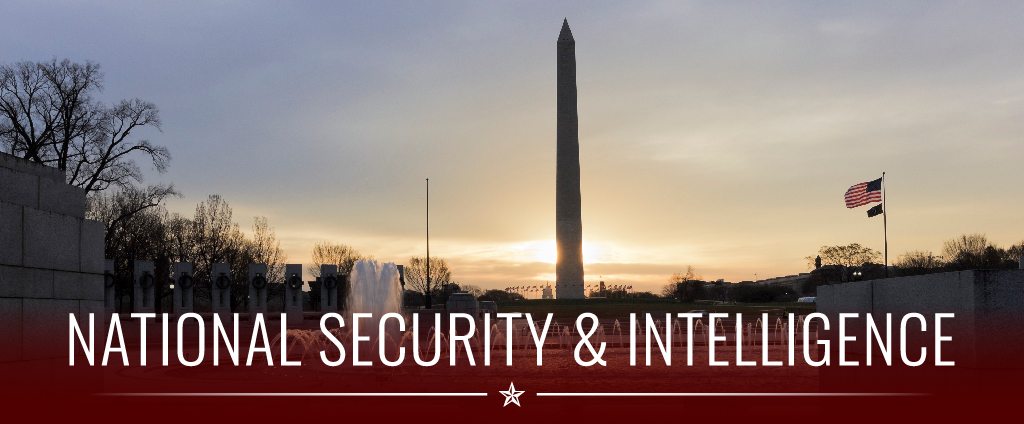
Overview | Qualifications | Cost | Admissions | Apply | Tracks & Courses | Academic Calendar
Overview
The Diana Davis Spencer Program in National Security allows students to earn a Master of National Security and Intelligence (NSI). This degree is designed for early career and mid-career professionals with a desire to prepare themselves for a career in national security, intelligence, and diplomacy. The degree strengthens a students’ ability to understand complex issues through rigorous coursework and exposure to real world experts. Well-published scholars and seasoned practitioners lead in-depth classroom discussions, collaborate on research, and mentor students in and out of the classroom.
The NSI program is a 42-credit-hour program with a final capstone project and a language requirement.
Language Requirement:
Many careers in the national security and intelligence fields require proficiency in languages. In turn, Bush School students must demonstrate intermediate or better proficiency in a foreign language by the end of the degree program. The Bush School DC provides online language programing and conversational learning services.
Capstone Project:
The capstone project takes place toward the end of the degree program. A group of three to five students will work together on a project for a client on an issue focused on national security or intelligence. The project will allow students to gain real-world professional experience, as well as build networking opportunities, and can be shared with potential employers, while creating a final product that helps the client.
Curriculum:
The curriculum consists of six required courses:
- 605 – American Foreign Policy
- 606 – International Politics in Theory and Practice
- 608 – Global Economy
- 652 – Role of Intelligence in Security Affairs
- 637 – Field Research Methods
- 670 – Capstone
Students will also take:
- Four courses from their designated Track and four elective courses.
Admissions
Now accepting applications for Spring 2026.
- Spring 2026 Preferred Deadline: October 1, 2025
Visit our Admissions page for information and resources on applying to The Bush School DC.
For Admissions questions, please contact The Bush School DC, Assistant Director of Admissions, Tory Haynes, at tory.haynes@tamu.edu
Qualifications
Students must have earned a bachelor’s degree by the start of their first semester. No professional experience required.
Cost
The Bush School DC is committed to supporting graduate students as they pursue careers in public service. The Bush School DC offers an affordable fixed rate tuition:
- Cost: $1,300 per credit hour (3-credit-hour course = $3,900)

